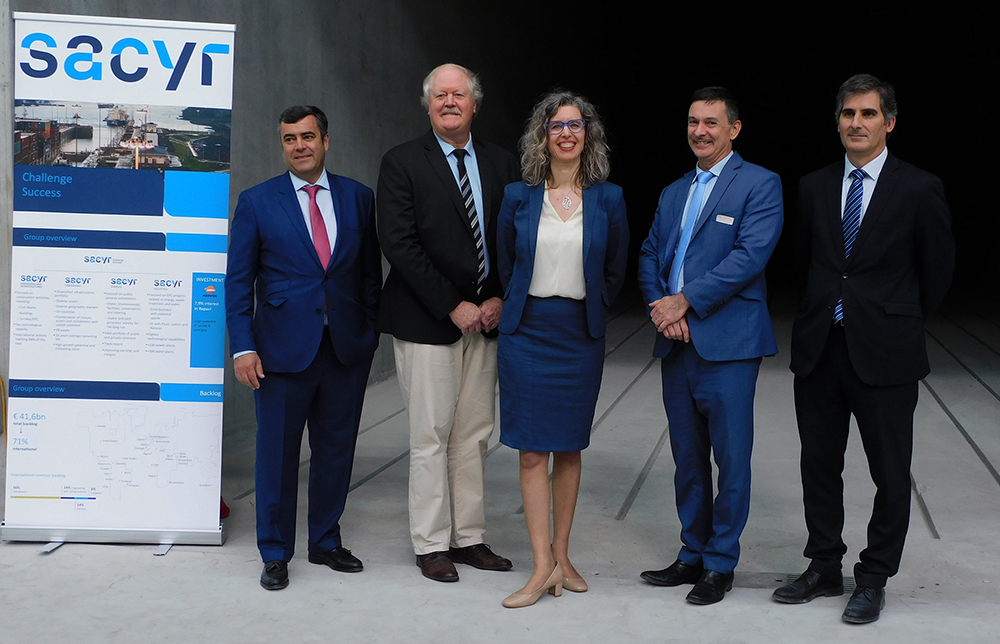Sacyr has completed the establishment of its waste treatment plant in Melbourne. Sacyr through its subsidiaries Sacyr Industrial and Sacyr Environment has built its first waste treatment project in Australia, the mechanical and biological treatment plant for municipal organic waste in Dandenong South (Melbourne, Victoria).
The indoor composting facility will be the most advanced facility of its type in Victoria and will be used by Councils in the South Eastern Suburbs of Melbourne, providing service to a population of 1.2 million people to recycle green garden and food waste. The plant will treat the organic waste obtained from selective collection and will have a maximum capacity of 120,000 tonnes per year
The contract, awarded by MWRRG (Metropolitan Waste and Resource Recovery Group), a government entity in the State of Victoria, includes the financing, engineering, construction, commissioning and operation for 15 years, with a possible extension of five years. The project's estimated revenue backlog is around 100 million euros.
Sacyr’s state of the art industrial composting facility takes the process of composting and makes it large scale. Instead of relying on individuals to compost their organic waste, Sacyr can compost the organic waste of eight south-east Melbourne metropolitan councils and produce up to 50,000 tonnes of quality compost per annum.
Environmental Benefits
The project creates several environmental Benefits to the Australian waste management sector, such as reducing the amount of landfill waste and reducing the emission of greenhouse gasses such as methane.
Additionally, all the plant warehouses will be totally sealed and will have a highly efficient and reliable deodorisation system so as not to affect neighbours.
With the start-up of the plant, more than 65,000 tons of CO₂ per year will cease to be released into the atmosphere and the emissions generated by landfill waste will be reduced by 85%, the equivalent of removing 13,900 cars from circulation.
State of the art technology
The selected process technology is among the most advanced in the recovery of waste and has a mechanical-biological treatment system. Sacyr is using a tailor-made solution for the organic waste treatment, combining the mechanical treatment system developed by German company Stadler, and the biological and air treatment systems developed by Dutch company Waste Treatment Technologies (WTT).
Sacyr's know-how, acquired over more than 20 years, will be an innovation in Australia's current waste management system. This procedure stands out among other aspects for its ventilation spigots and leachate collection systems.
High quality and commercial value of compost
Composting our food scraps diverts organic waste from landfill, reduces methane emissions that would otherwise be released in landfill, and produces a product (compost) that can be applied to land for crop production.
In addition, the compost obtained has a great commercial value due to the aerobic tunnel fermentation process and the aerobic maturation in the warehouse, resulting in a product that complies with the most demanding standards within the industry and with the rigorous Australian quality standard AS4454.
Sacyr's commitment towards innovation as a responsible and sustainable business management model is translated into the projects it develops to improve the waste treatment process
